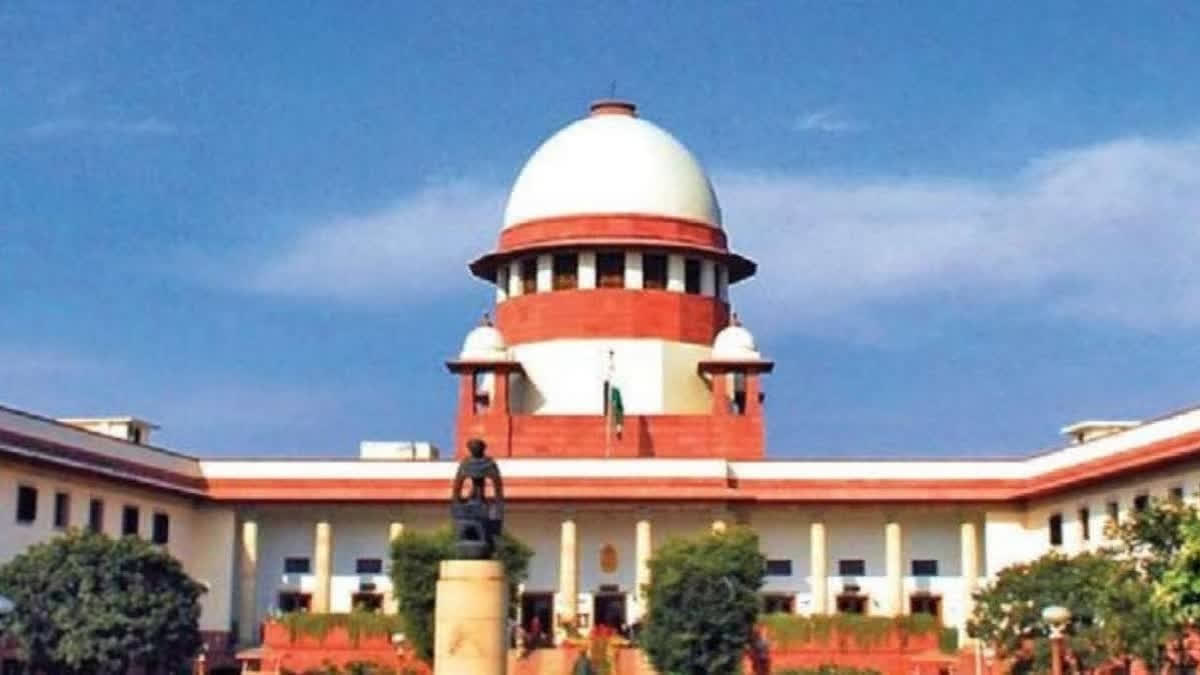New Delhi: The Supreme Court has constituted a seven-judge bench to hear the reference of the judgment in PV Narasimha Rao v State (JMM bribery case), which granted immunity to MPs/MLAs from prosecution if they accepted bribery and voted/asked a question in a particular manner. On September 20, a five-judge constitution bench headed by Chief Justice of India D Y Chandrachud said this judgment will be reviewed by a 7-judge bench.
A notice published today on the apex court website said: “Constitution Bench comprising Chief Justice of India D Y Chandrachud, Justice A.S. Bopanna, Justice M.M. Sundresh, Justice Pamidighantam Sri Narasimha, Justice J.B. Pardiwala, Justice Sanjay Kumar and Justice Manoj Misra is constituted to hear criminal appeal titled Sita Soren Vs. Union of India on 04.10.2023”.
During the hearing on the matter, on September 20, the apex court had noted that the members of state legislature must be free to express their views on the floor of the House without fear of consequences. “Prima facie, at this stage, we are of the view that correctness of the view of the majority in P V Narasimha Rao should be considered by a larger bench of seven judges….”.
The top court said, “It must be noted that the purpose of Article 105(2) and Article 194 (2) is to ensure that the members of the Parliament and state legislatures are able to discharge their duties in an atmosphere of freedom without fear of consequences which may follow, for the manner in which they speak or exercise their right to vote on the floor of the House”.
The top court said the object clearly is not to set apart the members of the legislature as persons who wield higher privileges in terms of immunity from the general criminal law of the land, which citizens of the land do not possess.
The top court observed that in the course of the judgment in PV Narasimha Rao, Justice SC Agarwal noted that if the construction in support of the immunity under Article 105(2) for a bribe taker were to be accepted, a member would be liable to be prosecuted on a charge for bribery if he accepts bribe for not speaking or not voting for a matter under consideration before the House. The top court said that he would enjoy immunity from prosecution for such a charge if he accepted a bribe for speaking or giving his vote in Parliament in a particular manner.
Also read: SC urges Satyender Jain to diligently participate in proceedings during bail plea hearing
The top court said the judgment of Justice Agarwal states that the offence is complete with the acceptance of the money or agreement to accept money being concluded and is not dependent on the performance of the illegal promise by the receiver. It further added that this aspect had not been dealt with in the judgment of the majority.
The top court said: “For the above reasons, we're of the view that the correctness of the view of the majority in Narasimha Rao shall be considered by a larger bench of seven judges…..”.
Attorney General (AG) R Venkataramani, representing the Centre, opposed reconsideration of the 1998 judgment. Senior advocate Raju Ramachandran, representing Sita Soren, stressed that the case was a regular criminal appeal which involves the question of application of the PV Narasimha Rao case verdict. However, the apex court said it would set up a seven-judge bench to examine the matter afresh and “straighten” the law and emphasized that it is an important issue having a significant bearing on the “morality of polity”.
The AG contended that Soren had received a bribe for the no-confidence motion (for voting against it) in the Parliament and there is nothing in the case to do with the business of the House.
Senior advocate PS Patwalia, amicus curiae in the matter, said the matter be referred to a larger bench. Senior advocate Gopal Sankaranarayanan, representing one of the intervenors, agreed with the amicus curiae.
Soren moved the apex court challenging the Jharkhand High Court order passed in February 2014, declining to quash a criminal case against her for allegedly taking a bribe to vote for a particular candidate in the 2012 Rajya Sabha elections.
The sensational JMM bribery case involved Shibu Soren, a former Jharkhand chief minister and ex-union minister, and four other party MPs who had accepted bribes to vote against the no-confidence motion against the then P V Narasimha Rao government in 1993.
Also read: Aadhaar cards should be issued for displaced after necessary verification: SC on Manipur violence


